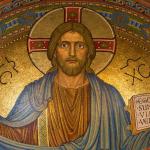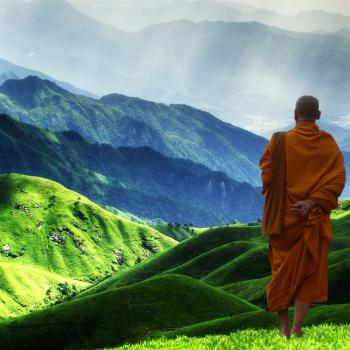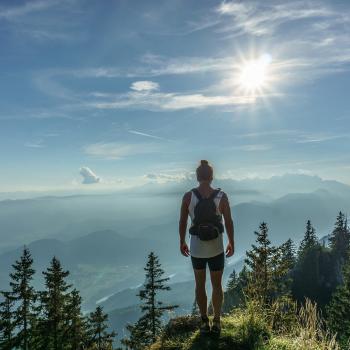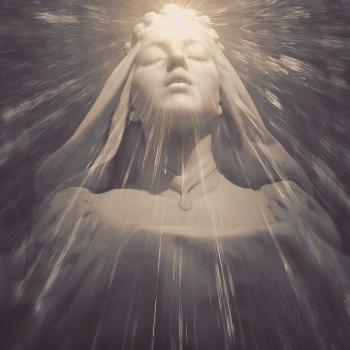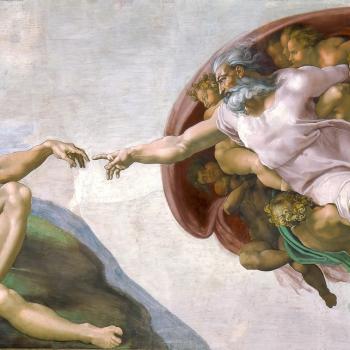All in Your Mind: On the Path to Where You Are
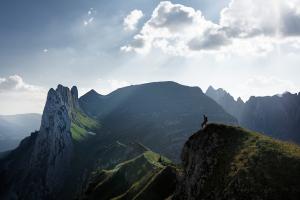
Enlightenment is the ultimate human level of higher consciousness. It is also the most intriguing change of all. There are those who seek it and never find it. Others gradually reach it after years of spiritual practice. And in these pages, we have seen letters from some who apparently had an instantaneous awakening, a grace that seemed to explode over them without any effort or preparation on their part.
Until the final stage of liberation, however, true enlightenment is a state of one-ness, of at-one-ment, what the Buddhists call the “wholeness and interpenetration of all existence.” All dualities, all opposites, are finally transcended. Ego is gone, self is gone; there is only the one Self. In this sense of remaining firmly established in divine or cosmic consciousness, total enlightenment is extremely rare. It is certainly beyond the scope of this author.
Still, the following letters of awakening contain many of the elements of enlightenment found in the literature. One may experience a light, or a revelation of the purpose and meaning of life. One may have visions, or sudden bursts of creativity. One knows that he knows. There is the sense that all is as it should be; a feeling of truth, goodness, and permanence prevails. Conscious of one’s relationship to the universe, there is the feeling that one’s true self is immortal, that there is nothing whatsoever to fear and nothing that is lacking. There is joy, laughter, love, and lightness.
The Way
What is most common to awakening is that one is finally able to see that part and whole, ego and self, figure and ground are no longer either/or. They are both/and. It is not what is seen so much as it is the way of seeing. Andrea described the sudden change in her perception when that last wall came tumbling down:
I went to the mountains to get away from pressures for a while and, I hoped, to gain the feeling of peace that seemed to be eluding me. But even in the tranquility of warm summer days and open wilderness trails, I still could not shake the thoughts of the work that awaited me and my sense of inadequacy.
On what was to be my last hike before the week vacation was over, I set out on an easy climb, past a small waterfall, up to the lake beyond it. I had my sights on the smooth green hills around the lake as my destination. They seemed to be free of the undergrowth and bushes surrounding me and promised to be a perfect place to enjoy the view. But when I finally reached those hills, I found their appearance had been deceiving. They had only seemed from a distance to be smooth. Up close, they were no different from the terrain I had been climbing all along.
I should have been disappointed, but I was elated! It was such a simple thing, like looking at a glass that is half full and half empty. All at once I knew, “This is it!” There is nowhere else to go, nothing that is missing. I already have everything I need for whatever I do—not at this present moment, of course, but when I need it. I and whatever my life presented to me were one, and I didn’t need to go beyond myself for anything.
I’m not saying that this was enlightenment. I imagine I’ll have doubts and confusion again, even if I never feel that same helplessness any more. But all the way back down the mountain, and for a long time afterwards, I wanted to laugh and sing and kiss the earth.
Nothing had changed for Andrea, and yet everything was changed. The distance that she felt, the separation, the differences exist only in the mind. Up close, at what had seemed to be a border, it was the same Ground. All at once, with just a shift in her focus, Andrea could see not a lack, but a fullness. She discovered she was already “there.”
One can hardly resist making an analogy between climbing mountains and climbing a spiritual path to enlightenment. In either case, the climb is usually slow and gradual. There may be peaks, followed by valleys. Progress is not always steady or consistent; stages of great activity are often followed by plateau periods when one is unaware of any changes at all. There are many varieties of experience, but only one way to go. Zen teaches “From of old there were not two paths; those who have arrived all walked the same road.” Where the way narrows, closer to the summit, on seeing one path, one will see the convergence of all paths. Everything is related here to everything else. As Hermes said, “If thou but settest foot on this path, thou shalt see it everywhere.”
Although the analogy of climbing a spiritual path is a frequent and useful one, it is best not to become too involved in the imagery. The way is not the same as climbing a mountain. It is not a road or a path; the way has no location. There is no treasure “out there” somewhere separate from ourselves, awaiting us at the top. That is only one more duality. As Hakuin said, “Your coming and going is nowhere but where you are.” There is, after all, only this one infinity, and it is everywhere. The story is told of a Zen master who lay dying, surrounded by his grieving disciples:
“Don’t leave us, Master,” they cried; “don’t leave us!”
“Don’t be foolish,” the Master replied. “Where would I go?”
Those who have preceded us on the way, whatever their religion, tell us that since there is no “where” to go, it is the “way” that one goes that is important. The way is a way of life, a way of being. As St. Catherine of Siena said, “All the way to heaven is heaven.”
Nothing to Get
Enlightenment is realization; there is nowhere to go and nothing to get. In the following letter, my friends Mr. and Mrs. X did not write about going somewhere. They describe an inner freedom from attachments in their summer vacation home. They do not claim to be awakened, just happy. In reading their letter, I’m not sure there is much difference:
There is nothing we should do. We have already experienced everything we like to do here. Now whatever we choose to do doesn’t matter. We live without discriminating.
There is no future, and very little past; we live in the present here, in the now moment. There is nothing we want or need, no desires and ambitions to fulfill, nothing lacking. Nothing disturbs our peace of mind. We live more connected, in a higher consciousness.
This couple changed their mind to a “vacation” consciousness, but there is really nothing we need to do first in order to change. The Rinpoche said, “It is not a question of becoming, it is a question of uncovering what you really are, of letting yourself be yourself, of letting everything that is not yourself fall away.”
No matter where we are, as Mr. and Mrs. X found, “There is nothing to get!” What we seek is not outside of us, not ahead of us on some path. It is through us and in us, interpenetrating. “Tat tvam asi,” the sage said simply, “Thou art that.”
Self-Realization
The end of ignorance is only the beginning of enlightenment, but we are promised there is no limit to the joy that can accompany it. Marian described such a moment:
I was going to be married in the Catholic Church, and I was going to be a good wife, but I had no intention of changing my religion. Then one Sunday I was sitting at Mass, listening to the homily of a very pleasant priest. I was relaxed, sort of day-dreaming, and oblivious to everything except the sound of his voice with its English accent. I heard him saying, “The voice of God is speaking inside of you. If you go in very quickly, you may be able to hear God saying something. But you can’t rehearse; just do it casually, when I say, ‘go.’”
I played the game. And I immediately heard the words, “Marian, I love you.” It was like a teletype; I both saw it and heard it. I was stunned by the Presence of a very personal, active God in my life who loved me and was there on a very daily and continuous basis.
By “going in very quickly,” Marian avoided discursive thinking. She came directly to the final wall where the personal self is faced with the presence of God within. Marian was always and already in that Presence. She just hadn’t known it yet.
Searching for God, we find our self; searching for our self, we find God. The Indian sage and teacher Yogananda said,
Self-realization is the knowing—in body, mind, and soul—that we are one with the omnipresence of God; that we do not have to pray that it come to us; that we are not merely near it at all times, but that God’s omnipresence is our omnipresence; that we are just as much a part of Him now as we ever will be. All we have to do is improve our knowing.
Always and Already
“If we meet no gods,” Emerson wrote, “it is because we harbor none.” Perhaps, as my friend Sam said, we “get in our own way.”
At seventy-one I finally feel that I am beginning to grow up. During the previous years I seldom was happy with myself and my accomplishments.I had a mentality in which I was constantly belittling myself, comparing myself to others.
Some may say, “That’s good! That’s the way it must be if you are to accomplish your goals. Never be satisfied.” To that I give a resounding: “Bull!”
But now in moments that probably are normal to most persons, I once in a while celebrate myself just as I am. And then I know that’s all I really want of life. That I am beginning to turn wise. And that I will “grow” without effort just as grass grows—if I do not get in my own way. . . .that accepting oneself is the best that life and eternity have to offer.
Honor life however it presents itself. Celebrate yourself, as Sam suggests. Be happy. God is not glorified by our discontent. This does not mean that we have achieved final perfection. But a change of mind is the first step. One must tell oneself, “Open up. Move beyond your belief systems, that old confining frame of mind. Every day, connect to the Higher Self that empowers you. You are not alone.”
The participation mystique is not “I live,” but “It lives me!” We recognize this through love and forgiveness, through happiness and peace. Having seen the self, one returns to the marketplace and recognizes a multiplicity in unity, one collective being. Eventually there is an awareness that your own Higher Self is not separate from the Higher Self of others.
Awareness of the Self is a sense of fulfillment. One is complete at last, joined in unity. The Indian teacher Sai Baba described our journey this way:
When the road ends, and the goal is gained, the pilgrim finds that he has traveled only from himself to himself, that the way was long and lonesome, but the God that led him unto it was all the while in him, around him, with him, and beside him!


